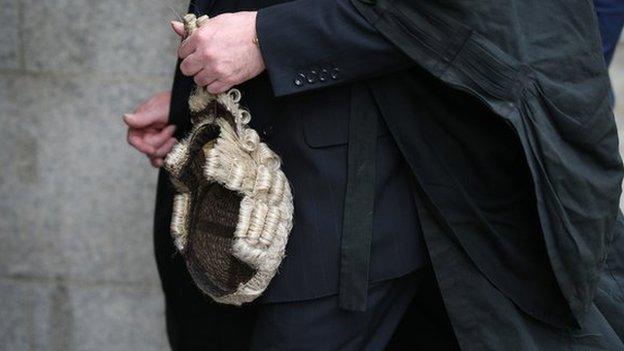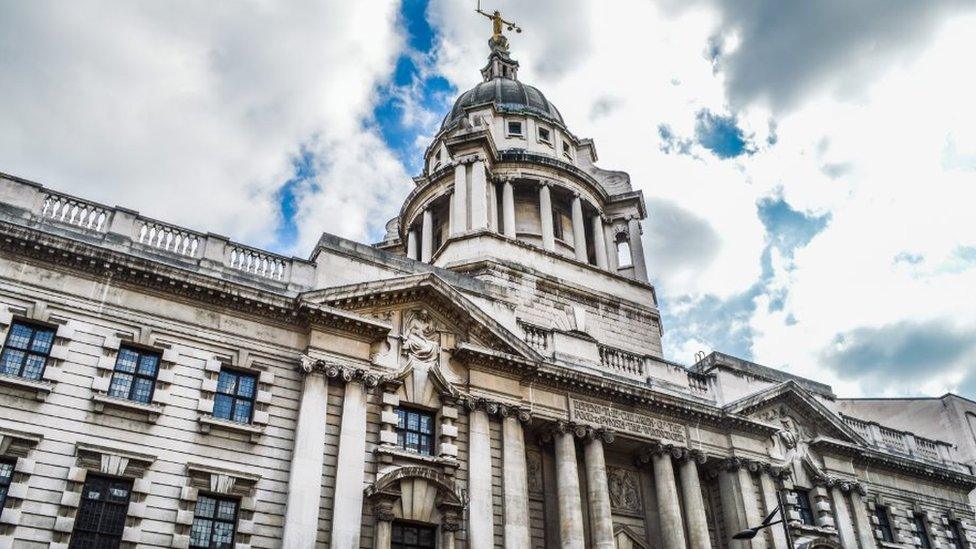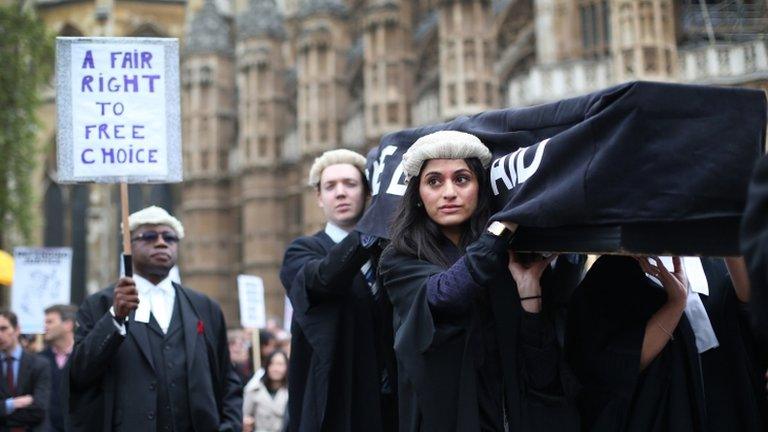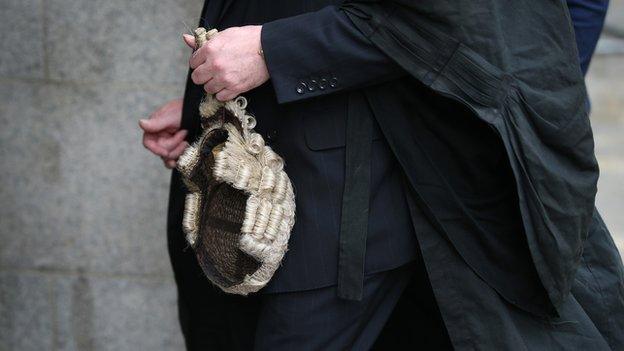Legal aid lawyers win £23m fee rise after strike
- Published

A 1% increase on all fees will also come into effect alongside the new scheme
The government has announced an extra £23m spending for barristers' trial fees in serious criminal cases, such as robbery, rape and murder.
It comes after barristers went on strike in protest at a new system for determining their legal aid payments for defending people in Crown Courts.
The Criminal Bar Association, which led the strikes, welcomed the announcement.
However, some of its members warned the funding boost is only a temporary "sticking plaster".
In April, the Ministry of Justice (MoJ) introduced a new system for determining fees for legal aid work called the Advocates' Graduated Fee Scheme (AGFS), external.
The system created bands for payments, with murder and manslaughter attracting the highest payments, but some barristers said the fees were too low.
The new system, along with existing concerns, prompted a period of industrial action by some criminal barristers.
In an attempt to resolve the issue, the government announced plans to increase spending on the AGFS by £15m in August.
Following a consultation, this amount has been increased by a further £8m.
Announcing the move, Lord Chancellor David Gauke also pledged to bring forward a 1% increase on all fees to come into effect alongside the new scheme.
Mr Gauke said: "Criminal defence advocates play a crucial role in upholding the rule of law, and it is vital that their pay adequately reflects the work they do in a fair and sustainable way."
Chris Henley QC, chairman of the Criminal Bar Association (CBA), said: "After years of deep cuts across the criminal justice system, significant investment is urgently required to address an increasing crisis, which is impacting profoundly on the retention and diversity of junior criminal barristers."
The Law Society echoed the CBA, adding that "advocacy in the Crown Courts is only one small part of the system".
The body's president, Christina Blacklaws, urged the MoJ to revise its approach to the AGFS, as well as fees paid for work undertaken in the magistrates' court and police station to "ensure solicitors are fairly paid for the work they have to do".
Junior barrister and CBA member Jo Cecil told the BBC the extra funding was welcome but added: "It's very much a first step. It's a sticking plaster."
There is a "real danger" that people will not be properly represented in court, she said.
Ms Cecil explained: "The fee structure means that during a trial, you can basically be working for less than the minimum wage for all intents and purposes, so senior barristers won't take those cases on."
- Published4 April 2018

- Published2 November 2013

- Published27 July 2015
